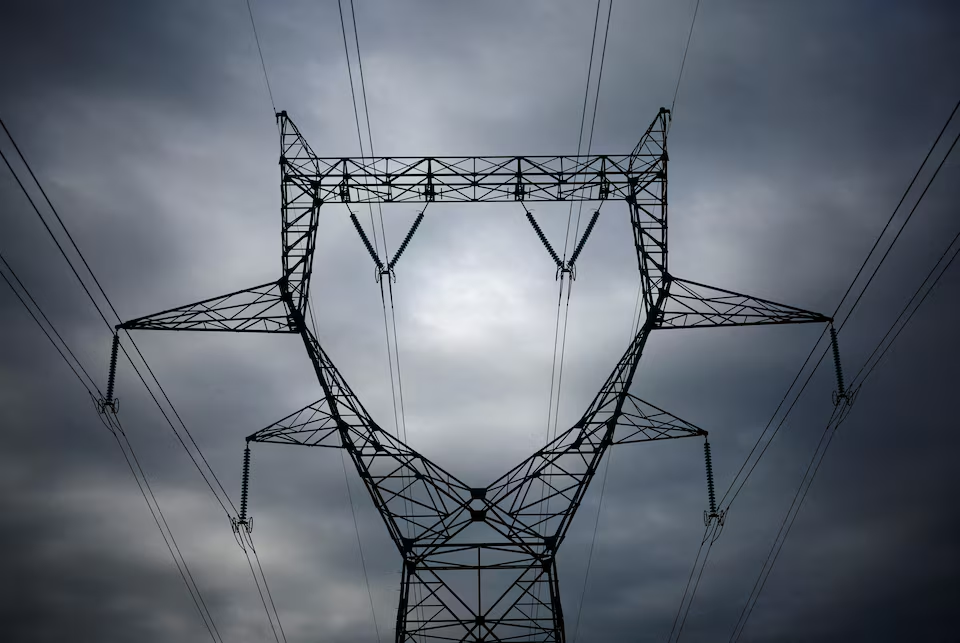The collapse of France’s government on Wednesday could have significant consequences for Europe’s energy markets, potentially leading to soaring electricity prices across the region. As Europe’s largest electricity exporter, France plays a crucial role in supplying power to neighboring countries, accounting for approximately 60% of net electricity exports in 2024, according to energy data from energy-charts.info.
This year, France’s record electricity exports have provided neighboring nations with a vital source of affordable, clean power while the region grapples with high energy costs, sluggish economic growth, and political instability. However, with the country now facing significant political turmoil, questions are being raised about whether France can maintain its high levels of electricity generation and exports.
EDF’s Debt Crisis and Government’s Financial Struggles
The turmoil stems partly from France’s state-owned utility, EDF, which operates the country’s nuclear power fleet—responsible for about 70% of France’s electricity supply. EDF was nationalized in 2022 after accumulating around $10 billion in debt, putting further strain on the government’s own financial obligations. As a state-owned entity, EDF enjoys access to preferential capital rates, and just last month, the French government was planning to provide interest-free loans to EDF to fund new nuclear reactors. However, proposals for new taxes on electricity supplies, aimed at bolstering government revenue, were abandoned by outgoing Prime Minister Michel Barnier just days before his ousting.
The political upheaval has created uncertainty for EDF and the broader energy sector, which requires significant investment to maintain France’s aging nuclear infrastructure and power grid. If the power vacuum continues, the outlook for France’s energy generation and distribution could become increasingly bleak, casting doubt on the future of its substantial electricity exports.
Record Exports at Risk of Curtailment
France’s nuclear generation has allowed the country to offer significantly lower power prices than its neighbors, making it a net exporter of electricity. In 2024, French wholesale power prices have averaged about 25% lower than those in Germany and the Netherlands, and 45% lower than in Italy, according to data from LSEG. This price advantage has spurred French power traders to export substantial amounts of electricity, generating a profitable trade.
By the end of November 2024, France had exported nearly 84 terawatt-hours (TWh) of electricity to neighboring countries, marking an 85% increase compared to the same period in 2023. This represents the highest export figure on record for this period since 2015. The surge in exports has been fueled by France’s nuclear fleet, which has increased output by about 12% from 2023 levels, reaching a three-year high in 2024. Additionally, a 31% rise in hydroelectric power output has further contributed to France’s energy exports.
However, both nuclear and hydroelectric production are approaching their historical output limits, leaving them vulnerable to cuts in the event of a prolonged political crisis or reductions in funding. If France’s energy generation capabilities are compromised, the impact could be severe, with neighboring countries facing potential shortages of low-cost electricity.
Implications for Europe’s Largest Energy Importers
The countries most vulnerable to a disruption in French electricity exports are Germany and Italy, two of Europe’s largest electricity importers. Both nations rely heavily on natural gas-fired power plants, which have been severely impacted by the decline in Russian gas supplies since 2022. To mitigate this, Germany and Italy have increased imports of liquefied natural gas (LNG). However, the high cost of LNG compared to pipeline gas has driven up energy costs, putting pressure on industries that rely on gas for power or as a feedstock.
As electricity imports increase across Europe in response to rising energy costs, France has been a key supplier, helping to stabilize power prices. If France’s electricity generation capacity falters due to political instability, it could lead to a sharp decline in power exports, causing electricity prices to skyrocket across Europe and potentially triggering a new regional energy crisis.
The evolving situation in France underscores the interconnectedness of European energy markets and the critical role France plays in ensuring affordable electricity across the region. If the political impasse is not resolved quickly, the ripple effects could reverberate throughout Europe’s energy sector, exacerbating existing challenges and potentially creating a fresh wave of energy price instability.



